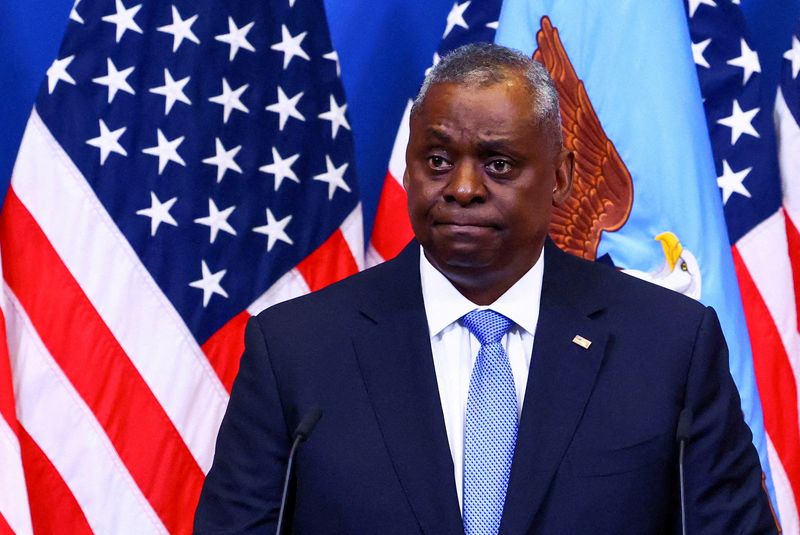By Kirsty Needham
(Reuters) -U.S. Secretary of Defense Lloyd Austin said on Thursday during a visit to Papua New Guinea that the United States was not seeking a permanent base in the Pacific country but would boost the nation's capability under a new defence agreement.
Papua New Guinea (PNG) and the United States signed a defence cooperation agreement in May that sets a framework for the U.S. to refurbish PNG ports and airports for military and civilian use over 15 years.
Austin met PNG Prime Minister James Marape on the first visit by a U.S. defence chief, to discuss deepening ties and announce a U.S. Coast Guard vessel would arrive in August under a separate maritime law enforcement deal.
French President Emmanuel Macron will arrive in PNG, a resource-rich but largely undeveloped nation north of Australia, on Thursday evening, the first visit by a French leader. Macron warned in a speech on Thursday in neighbouring Vanuatu of a "new imperialism" appearing in the Pacific region, testing the maritime and financial sovereignty of small nations.
"Foreign ships fish illegally here. In the region, many loans with Leonine conditions strangle up development," he said.
The United States and its allies are seeking to deter Pacific Islands nations from establishing security ties with China, a major infrastructure lender to the region, a rising concern amid tension over Taiwan, and after Beijing signed a security pact with Solomon Islands.
The U.S. Coast Guard is boosting its presence in the region under bilateral agreements to patrol the vast exclusive economic zones of island states, although the Solomon Islands and Vanuatu, with closer ties to Beijing, have blocked U.S. Coast Guard port calls.
Marape said PNG's second-largest city of Lae, a major cargo port, has been designated as a U.S. base for disaster management.
"I just want to be clear, we are not seeking a permanent base in PNG," Austin told a press conference in the capital, Port Moresby.
The text of the defence agreement shows that it allows the staging of U.S. forces and equipment in PNG.
Austin said the two countries would modernise PNG's defence force and boost interoperability.
"Our goal is to make sure we strengthen PNG's ability to defend itself and protect its interest," he said.
PNG's parliament has yet to ratify the defence deal, which has been questioned by some opposition politicians concerned about upsetting major trading partner China. Marape said his government prioritised diplomacy.
"In the Pacific we are not about war, we are about peace, tolerance and of course promoting our values of democracy, Christianity ... The USA has always been showing that character also in their global footprint," he said.

"USA do not need PNG's ground to be a launching pad," he told reporters in response to questions.
"They have bases in Philippines, in Korea, elsewhere, much closer to China," he added.